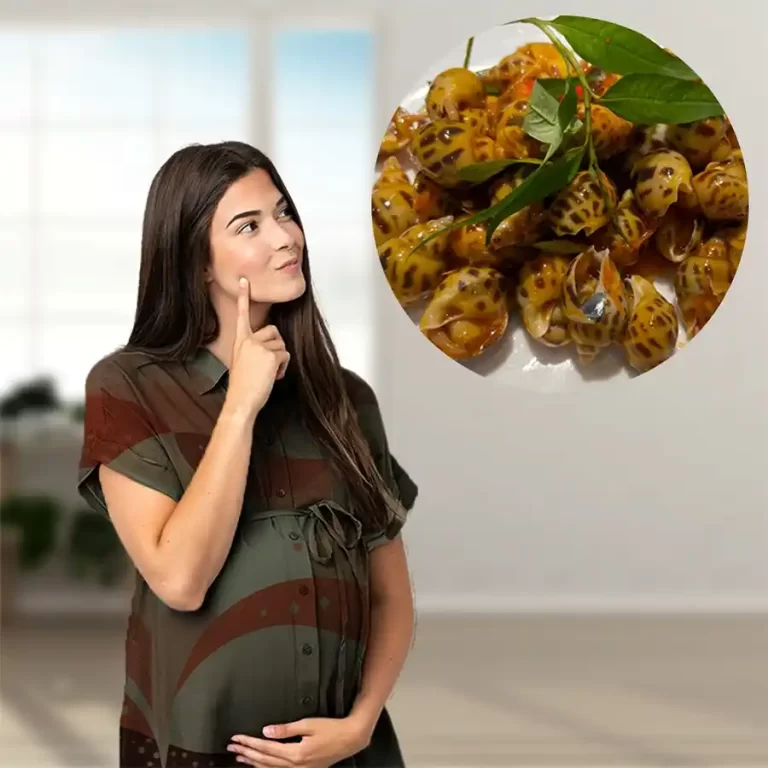Can Pregnant Women Eat Snails in the First Trimester? 3 Tips
Can Pregnant Women Eat Snails in the First Trimester? 3 Tips
Pregnant women need to eat a variety of different foods throughout their pregnancy so that their bodies receive enough nutrients and energy. So, can pregnant women eat snails in the first 3 months? Today’s article by WiliMedia will provide answers to the questions of pregnant women.
Before finding the answer to this question, let’s refer to the nutritional benefits that snails bring to users with WiliMedia!

Nutritional value of snails
Every Vietnamese family knows about snails and many people like dishes made from snails. But few people understand the nutritional value of snails. The question is, do people who eat snails get any nutritional benefits?

According to research, snails contain many nutrients that are good for health, including:
-
- Provide Magnesium
85g of snails contain 231mg of phosphorus, equivalent to 33% of the recommended daily amount of phosphorus for adults. This nutrient helps metabolize energy, care for bones and teeth, and regulate calcium, zinc, potassium, and vitamin D.
-
- Provide Selenium
Snails contain a lot of selenium. Pregnant mothers who eat snails are provided with the necessary amount of selenium for the body to support the endocrine and immune systems while reducing the risk of cardiovascular disease, rheumatoid arthritis, recurrent infections, and cancer.
-
- Provide Vitamin E
Snails contain a lot of magnesium and selenium as well as vitamin E. Vitamin E is an essential and indispensable vitamin for the body because it helps metabolize vitamin K, protect cells from the harmful effects of free radicals, and produce red blood cells.
Vitamin E can also help pregnant women avoid gestational diabetes.
-
- Providing Phosphorus
There are 231mg of phosphorus in 85g of snails, equivalent to 33% of the recommended daily phosphorus intake for adults. This nutrient regulates nutrients and maintains bone density while supporting energy metabolism.
To balance calcium and phosphorus levels, you should eat foods rich in calcium to avoid osteoporosis.
-
- Providing Protein
Protein (11.1– 12.2 g) participates in the creation of new cells and tissues as well as the repair of damaged cells. Protein plays an important role in the formation of nerve cells for the fetus.
-
- Providing Carbohydrates
Carbohydrates (3.9–7.6mg/100g) help pregnant mothers complete daily activities and nourish the developing fetus.
-
- Calcium Supply
After the first three months, pregnant women can eat snails because snails have a high calcium content, about 1310–1660mg/100g, depending on the type of snail. This content is much higher than pork (7mg/100g), chicken (12mg/100g), beef (12mg/100g), …
Can Pregnant Women Eat Snails in the First 3 Months?
As mentioned above, snails bring nutritional benefits to both pregnant women and everyone. So, can pregnant women eat snails in the first 3 months?

It is believed that pregnant women eating snails in the first three months of pregnancy can cause the baby to be born drooling, slow to speak and not active. But so far, there has been no scientific research to prove that this concept is true. Scientists say that many vitamins and minerals in snails are beneficial to the health of pregnant women.
On the other hand, snails contain many vitamins and minerals that are essential for the health of pregnant women. Snails contain substances such as protein, calcium and lipids (quantified by range because each type of snail has a different quantification). It can be seen that snails can help pregnant women’s health by providing energy, reducing fatigue and strengthening bones.
Pregnant women are very careful about what they eat when they first enter pregnancy, such as whether they can eat snails or not. Because the first trimester often has symptoms of morning sickness, you should limit eating snails. Eating snails, especially uncleaned snails, can cause nausea and even vomiting due to its fishy smell. Pregnant women can eat a moderate amount if they crave it too much.
Things to note when pregnant women eat snails in the first 3 months of pregnancy
Experts advise pregnant women not to eat snails in the first 3 months. For what reason? Here are some of the main reasons why pregnant women should limit eating snails as much as possible during this period:
-
- Stimulates nausea and vomiting: Pregnant women are very sensitive in the first 3 months because this is the period of pregnancy. Pregnant women may vomit, even vomit due to the fishy smell if they eat snails. This will make morning sickness worse.
- May have allergies: The immune system and biological rhythm are reduced when the pregnant woman’s body changes hormones. This can cause pregnant women to have allergies during pregnancy, even if they have never had allergies before. Mothers who are allergic to eating snails can cause itching, hives, abdominal pain, diarrhea, nausea, headaches and dizziness. Pregnant women may have difficulty breathing, fainting and even coma in severe cases.
- Potential for food poisoning: Many types of flukes such as lung flukes, liver flukes and listeria bacteria live in snails. Pregnant women can be infected with parasites that cause food poisoning with symptoms such as diarrhea, abdominal pain and vomiting if the snails contain these flukes or if the processing is not done properly. Moreover, because the fetus is newly formed and has not yet firmly attached to the uterine wall, there is a high risk of detachment or miscarriage.
These are the reasons why pregnant women in the first 3 months should limit eating snails. This does not mean that snails are not good for pregnant women.
Some things to note when pregnant women eat snails
Can pregnant women eat snails in the first 3 months? The answer is that pregnant women should eat snails after the first 3 months to ensure the safety of the fetus. To ensure food safety, mothers should eat snails prepared at home rather than buying them from restaurants.

-
- Avoid soaking snails for too long
Many people believe that snails should be soaked for a few days before cooking so that they can remove the dirt inside. However, this will make the snails thin or die, making the dish smelly and unappetizing.
Pregnant mothers should mix rice water and vinegar into the snails to remove dirt. Mothers can add chili to the water to soak the snails. On the other hand, the soaking time is only six hours.
-
- Do not eat the tail of the snail
Avoid contact with the lower intestines of the snails, pregnant mothers should only enjoy the fresh meat on top. In fact, this intestine can contain a lot of dirt and can be an ideal environment for the development of worm larvae. In addition, it can even contain toxins such as mercury, which can be harmful to both the mother and the fetus.
-
- Boil thoroughly and wash clean
One of the nutritious dishes is snails. However, snails live in ponds or lakes, where many types of parasitic worms live. Therefore, when preparing this food, you need to wash and boil it thoroughly to avoid affecting the health of pregnant mothers and fetuses.
-
- Eat snails in moderation
Snails are nutritious, but pregnant mothers should only eat a moderate amount, about 1 to 2 meals/week, because too much can cause bloating. Mothers should limit eating snails, or even abstain from eating snails, if they have stomach pain, indigestion or unhealed ulcers.
To ensure food hygiene, pregnant mothers should prepare snails at home or at clean restaurants.
Dishes made from snails not only increase blood circulation and restore health, but also provide the body with many nutrients, bringing many health benefits to the eater, including pregnant mothers. Therefore, mothers should eat these foods at a reasonable frequency during pregnancy.
Conclusion
WiliMedia has compiled all the basic information about whether pregnant women in the first 3 months can eat snails. Mothers need to pay attention to their diet and have regular check-ups. Hopefully, both mother and baby will have a safe and healthy pregnancy.
Website: https://wilimedia.com/
Fanpage: https://www.facebook.com/wilimedia.en
Mail: [email protected]
